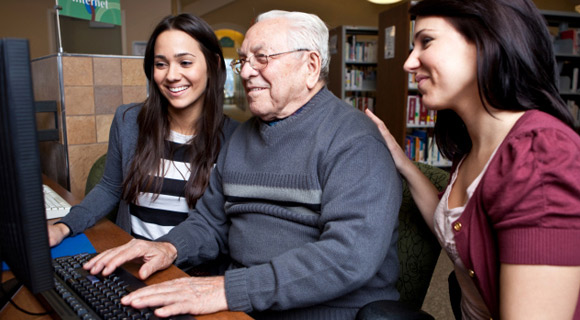
Service and Health: A Q&A with Christine Carter, Ph.D.
Dr. Martin Luther King, Jr. once said, “Life’s most persistent and urgent question is: ‘What are you doing for others?’” Each year, Americans across the country answer that question by coming together on Martin Luther King, Jr. Day to serve their neighbors and communities. Taking time to serve a community or individual in need makes us feel good. But is there any correlation between acts of kindness and our health?
Christine Carter, sociologist and happiness expert at the Greater Good Science Center, University of California, Berkeley, believes that it does. Carter is the author of Raising Happiness: 10 Simple Steps for More Joyful Kids and Happier Parents. She also writes a blog for Greater Good, and teaches online parenting classes to a global audience. The Center for Total Health blog recently spoke with Dr. Carter on the connections between happiness, community service, and health.
CTH Blog:
I’m sure you must get a lot of interesting looks when you give your title. Can you help explain what a happiness expert is and why you were interested in that field?
CC:
I took up the study of happiness the way that normal people decide to learn a new language. My best friend wanted to learn how to speak Spanish fluently; I wanted to be more fluent in happiness. I embarked on my new study of happiness from an academic angle, studying the sociology of happiness in childhood. I wanted to know what types of children were happy and why. I wanted to know their habits and beliefs; how often they ate dinner with their families and how involved their grandparents were. I learned, in all of this study of happiness, that in order to be happy, that there are skills that we can practice ourselves, in our romantic relationships, and with our children that will help us all lead good, meaningful, happy lives.
CTH Blog:
When we talk about one of the many ways we can be happier – adults and children – how does community service come into play?
CC:
Kindness can be contagious. When we see someone else perform an act of kindness, we are more likely to feel an impulse to help out, too. Research suggests that altruistic children have at least one parent (usually of the same sex) who deliberately communicates altruistic values to their kids. Similarly, when preschoolers have nurturing caregivers who deliberately model helping others, they tend to be more helpful and verbally sympathetic to other children when they hurt themselves.
CTH Blog:
Is there a connection between community service/volunteering and our overall health?
CC:
As for helping others, studies of emotional stimulation prove that the old saying about it being “better to give than to receive” is not just folklore. When we help someone else, whether it’s at a soup kitchen or just among your friends, it does tend to make us happier.
CTH Blog:
So, if we all volunteer today, can we count of being healthier and happier?
CC:
Think of happiness as a skill. It’s all about what we practice and think about. So yes, when we practice things that are likely to make us happier–like volunteering or helping others–we are likely to increase our health and happiness. Another practice that often quickly leads to happiness is gratitude. It can make us feel more satisfied with our lives all year round when we consciously express appreciation for things that we otherwise might take for granted. It can be our kids, our close friends, even just the fact that we have hot water for a shower.
CTH Blog:
Would you share a story of your own experience volunteering as a child?
CC:
My fondest memories helping others as a kid come from trips I’d take with our church high school group to rural areas where there were a lot of families living in poverty. We’d set up camp for a week and help out where we were needed — painting fences, tutoring kids, etc. When I look at my closest friends now, nearly three decades later, two-thirds of them are still from that era in my life. Helping others is very bonding. And close social ties–friendships like the ones I made way back then–are the best predictors of happiness that we have.





